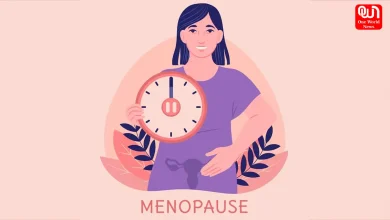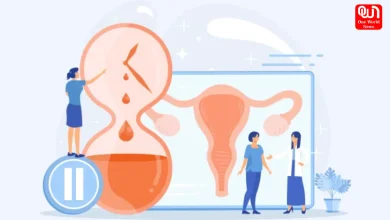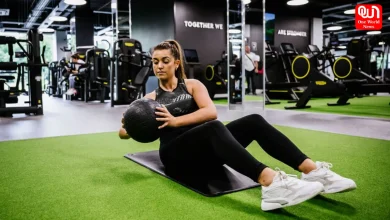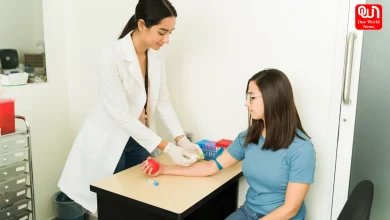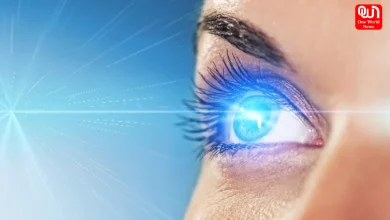Practice These 5 Easy Yoga Poses For PCOS And Hormonal Imbalance
"Restore hormonal balance with these 5 yoga poses for PCOS. From stress relief to reproductive support, empower your health through mindful practice."
Harmonise Your Hormones: 5 Easy Yoga Poses for PCOS and Hormonal Balance
Polycystic Ovary Syndrome (PCOS) is a common hormonal disorder affecting people with ovaries, characterized by irregular periods, ovarian cysts, and hormonal imbalances. Managing PCOS often involves a multifaceted approach, and incorporating yoga into your routine can be a powerful tool for promoting hormonal balance. In this guide, we’ll explore Yoga Poses For PCOS that specifically target PCOS symptoms and contribute to overall hormonal well-being.
Child’s Pose (Balasana): Cultivating Relaxation and Stress Reduction
Unwind Your Stress to Balance Hormones
Child’s Pose is a gentle yoga posture that encourages relaxation and stress reduction, crucial in managing PCOS symptoms. Stress can exacerbate hormonal imbalances, leading to increased cortisol levels and disrupted reproductive hormones. By practising Child’s Pose, you activate the parasympathetic nervous system, promoting a state of calmness and helping to counteract the negative effects of stress on your hormones.
To practice Child’s Pose:
Start on your hands and knees in a tabletop position.
Sit back on your heels, extending your arms forward and lowering your chest towards the mat.
Rest your forehead on the floor, lengthening your spine.
Breathe deeply, focusing on releasing tension and stress with each exhale.
Read more: 6 Overall Health Benefits Of Doing Just 20 Minutes Cardio In A Day
Butterfly Pose (Baddha Konasana): Stimulating Reproductive Organs
Enhancing Blood Flow to Support Hormonal Function
Butterfly Pose is an excellent yoga pose for stimulating the reproductive organs and improving blood circulation in the pelvic area. This seated pose can help relieve menstrual discomfort, regulate menstrual cycles, and promote hormonal balance.
To practice Butterfly Pose:
Sit with your legs extended.
Bend your knees and bring the soles of your feet together, allowing your knees to drop towards the sides.
Hold your feet with your hands and sit up tall.
Gently flip your knees up and down to stimulate the pelvic area.
Warrior II (Virabhadrasana II): Empowering Your Body and Mind
Building Strength and Confidence for Hormonal Health
Warrior II is a dynamic standing pose that not only strengthens your legs and core but also helps build confidence and empowerment. This pose engages the abdominal muscles, promoting better digestion and supporting overall hormonal health.
To practice Warrior II:
Start in a standing position and step your feet wide apart.
Turn your right foot out 90 degrees and bend your right knee, aligning it with your ankle.
Extend your arms parallel to the floor, reaching actively through your fingertips.
Keep your gaze over your right hand and hold the pose, breathing deeply.
Repeat on the other side.
Bridge Pose (Setu Bandhasana): Balancing Hormones Through Backbends
Opening the Heart and Regulating the Endocrine System
Bridge Pose is a backbend that opens up the chest and shoulders and stimulates the endocrine system, which plays a crucial role in hormonal regulation. This pose is particularly beneficial for individuals with PCOS as it targets the thyroid and adrenal glands, supporting hormonal balance.
To practice Bridge Pose:
Lie on your back with your knees bent and feet hip-width apart.
Press through your feet to lift your hips towards the ceiling.
Clasp your hands under your back and roll your shoulders underneath you.
Hold the pose, breathing deeply to enhance the stretch in your chest and throat.
Reclining Bound Angle Pose (Supta Baddha Konasana): Nurturing the Reproductive System
Deep Relaxation for Hormonal Harmony
The reclining Bound Angle Pose is a restorative posture that promotes deep relaxation and targets the reproductive system. This pose is especially beneficial for those with PCOS, as it gently stretches the inner thighs and groins, and stimulates the abdominal organs, supporting overall reproductive health.
To practice Reclining Bound Angle Pose:
Lie on your back and bring the soles of your feet together, allowing your knees to drop to the sides.
Support your knees with blocks or cushions to find a comfortable position.
Place your hands on your belly or let your arms rest by your sides.
Close your eyes and focus on your breath, allowing your body to release tension and stress.
We’re now on WhatsApp. Click to join.
Conclusion:
Incorporating these 5 yoga poses for PCOS into your routine can be a transformative step in managing PCOS symptoms and promoting hormonal balance. Regular practice not only enhances physical well-being but also nurtures mental and emotional health. Remember to listen to your body, and if you have any existing health concerns or conditions, consult with a healthcare professional before starting a new exercise regimen. Embrace the healing power of yoga and empower yourself on the journey to hormonal harmony and overall well-being.
Like this post?
Register at One World News to never miss out on videos, celeb interviews, and best reads.


